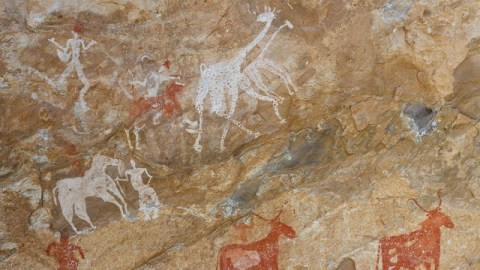Best At Drawing Animals In Motion: Cavemen

What’s the Latest Development?
Biological physicist Gabor Horvath and his colleagues decided to build upon a 2009 study that uncovered the high number of errors in drawings of moving quadrupeds found in anatomy textbooks and museum displays. This time, they compared 1,000 art examples from prehistory, the time period prior to Eadweard Muybridge’s seminal films showing horses in motion, and the time period after the 1887 public release of those films. The findings, published this week in PLOS ONE, revealed that the drawings of prehistoric cave artists were the most accurate in terms of capturing an animal’s true gait.
What’s the Big Idea?
The researchers had estimated that, simply by chance, artists in general would get the gait wrong 73 percent of the time. However, art produced after prehistory but before Muybridge was wrong 83 percent of the time. Interestingly, the art produced after Muybridge was more accurate, but not by as much as one might think: 58 percent of samples were in error. Cave artists working between 10,000 and 50,000 years ago, on the other hand, got it right 54 percent of the time, suggesting that there’s something to be said for having an extremely close relationship with the natural world.
Photo Credit: Shutterstock.com




